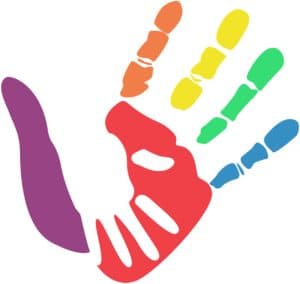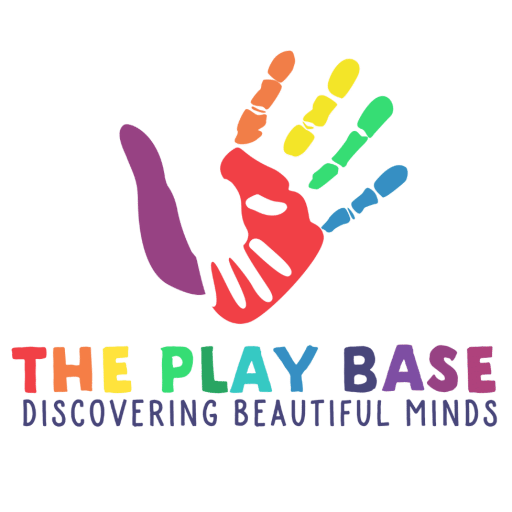ABA Therapy
ABA Therapy - ABA Therapist - In-Home ABA Therapy Near Me West Palm Beach, Boca Raton, Florida.
Table of Contents
Home » ABA Therapy Florida
What is ABA Therapy?
ABA stands for Applied Behavior Analysis. It is a type of therapy mostly used to treat Autism in children. It is based on principles of behavior and learning theories. It basically uses our knowledge of how behavior works in real-world situations.
The purpose of ABA is to:
- Understand behavior and how the environment affects the behavior
- Understand how learning works
- Increase helpful behaviors and reduce the ones that negatively affect learning
ABA analysis helps in gaining knowledge of how behavioral changes occur and react in real environments. The purpose is to enhance the helpful behaviors and reduce the ones that may impact the behavior in a negative manner.

How does ABA help Children?
- It helps in enhancing their communication skills and elevates their language know-how
- It enhances their academic and social skills, sharpens their memory, and increases their focus.
- Reduces problematic behavior
Behavior analysis techniques have been utilized and researched for many years. It has assisted numerous types of students in acquiring a variety of abilities, such as adopt better lifestyles, and improve their communication skills. Since the 1960s, instructors have utilized ABA in treating kids suffering from Autism and other developmental issues.
How does ABA Therapy Work?
ABA Therapy uses various methods in learning behavioral changes. The treatment of ABA is easing going and does not require a lot from you.
- It can be used to fulfill each of the individual’s needs
- Available in various areas such as schools, homes, and the communities
- Develop the expertise that are needed in daily routine
- It may include individual or group discussions
Among the core schemes applied in ABA is positive reinforcement.
An individual is more likely to replicate an action when it comes up by something they admire (a reward). This promotes beneficial behavioral change over time. The therapist then determines a target behavior. The person gets a reward each time he successfully applies the skill or behavior. The incentive is important to the receiver; instances include compliments, a gift, a book or toy, the ability to view a movie, access to a playing areas, etc.
The positive incentives drive the person to carry on using these skills. This eventually results in significant behavior modification.
What Are The ABC’s Of ABA?
Behavior, Consequence, Antecedent
A big aspect of any ABA program is identifying antecedents (what happened before the behavior takes place) and their repercussions (what occurs after the behavior).
The “A-B-Cs,” or the three steps below, help in learning and understanding behavior.
- An antecedent is an event that takes place before the intended behavior. It might be expressed verbally as a request or order. It may be something tangible, like toy or an object, or it could be something in the surroundings, like a light or sound. An antecedent can arise from the outside environment, from some other people, or from the inside (for instance: a feeling or thought).
- A resultant behavior is how someone reacts or does not react to an antecedent. It could result in an activity, a statement, or anything else.
- An outcome: this occurs when the action takes place. It can involve minimal replies for inappropriate or wrong responses, or it can involve rewarding the positive behavior.
Examining A-B-Cs allows us to recognize:
- Why a certain action might occur
- How different outcomes might impact the likelihood that the behavior will reoccur
For instance:
- Antecedent: At the completion of the day, the instructor says, “Time to clean up.”
- Behavior: The student shouts, “No.”
- Consequence: The instructor put way the toys and declares, “Playtime is over.”
- So, how can ABA help in such a situation?
- Antecedent: At the completion of the day, the instructor says, “Time to clean up.”
- Behavior: The student is instructed to inquire, “Can I get 5 extra minutes?”
- Consequence: The instructor responds, “Sure, you can play for five more minutes.”
What Does An ABA Program In Florida Include?
Every child with Autism has different needs in terms of improving their behavior and learning. Hence, ABA therapy programs shouldn’t be ‘one size fits all.’ In fact, efficient ABA programs in Florida are tailored for the requirements of each individual student.
The aim of the ABA therapy program in Florida is to assist every child improve their skills so that they or can become independent and succeed in life.
How Does A Behavior Analyst (BCBA) Design And Assess Your Childs’s Treatment Plan?
A professional and highly trained BCBA models and supervises the plan. They personalize the ABA therapy program according to the needs, skills, and family environment of each child.
First, the analyst conducts a comprehensive assessment of the preferences and skills of each child. The analyst then uses this information to write the goals of the treatment, depending on the age and the condition of the person/child with ASD. Treatment goals can also include family goals.
Here are some of the skills areas that are included in the goals:
- Social skills
- Self-care like bathing
- Language and communication
- Motor skills
- Leisure and play
- Learning skills
In the treatment plan, these skills are divided into small steps, and each step is taught one after another. The therapy usually starts with simple steps like replicating single words, and the teachers gradually move to complex steps like making full sentences.
The behavior analyst and program therapists gather data from each session to analyze progress. The BCBA also conducts meetings with the members of family and therapists regularly to measure development. They can then adjust the treatment goals and plans accordingly.
ABA Procedures and Plans
The ABA therapist uses several procedures, some of which are guided by the therapist and some by the student with Autism. Parents and other close family members are also trained to ensure they support the treatment by practicing learning techniques with the child.
The autistic child or person gets many occasions to learn skills and practice them every day. The person will encounter planned situations as well as naturally occurring circumstances to practice skills. For instance, if a person is learning to say “goodbye,” they will get an opportunity to rehearse it with the instructor in the class and at the pick-up time.
The goal of the ABA plan is to focus on positive behavior and social connections and make learning enjoyable. That said, all the behaviors that can prevent learning are excluded from the program. Contrary to popular belief, ABA is beneficial for all ages.
Where can I find ABA services in Florida?
To begin with, follow the subsequent steps:
- Consult with your ABA provider to know whether ABA therapy is required for your child or not. The pediatrician can provide you with the prescription if it is required by your insurance company.
- Consult your insurance agency to see if they pay the expenses of ABA treatment and what your reimbursement amount is.
- Find ABA providers in your area by searching our resource network. Alternatively, get advice from your child’s teachers and doctors.
- Request an assessment test from the ABA therapist. Prepare some questions (see next!)
What Questions I Should Ask An ABA Therapist?
It’s essential to choose an ABA therapy provider that is suits your family. The therapists should be friendly so that your child can trust them. If the child and the therapists enjoy each other’s company, the ABA program will be more effective.
You should ask the subsequent questions to see if a provider is a right choice for your kid and family:
- How many behavior analysts does the provider have?
- Are the BCBAs officially registered with the BACB?
- How many therapists does the provider have?
- How many behavior counselors will be assigned to your child?
- Do therapists receive training regularly? Which type of training?
- How many times does the behavior analyst supervise the therapists in a week?
- Do you have any safety procedures?
- What does an average ABA session involve?
- Is the therapy clinic-based or home-based?
- What is the process for determining the goals for each individual child? Do the goals include parents’ input?
- Are the treatment goals re-evaluated and modified? How often?
- How does the provider evaluate the progress of your child?
- How many hours does my child get in a week?
- Does the provider have a waiting list?
- Does the provider accept insurance? Which type?
This article is available as a pdf download for your convenience.



